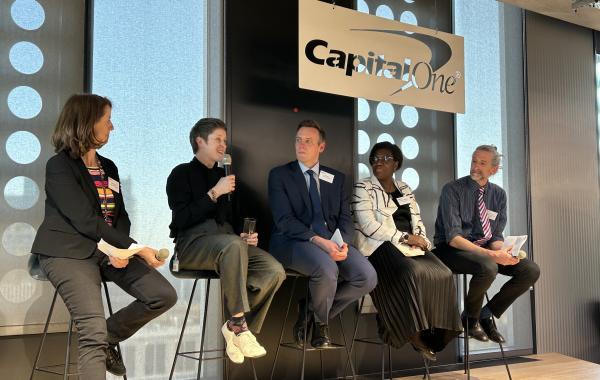National Numeracy is the UK’s only charity dedicated to everyday maths. We aim to boost social mobility and inclusion in disadvantaged communities through numeracy. We empower adults and children to feel confident using numbers in everyday life, helping them thrive at work, home and school.
Numeracy is a key driver of social mobility. The strongest predictor of a person’s numeracy level in the UK is their socio-economic background.
Improving skills, confidence and attitudes to numbers and maths can make a real difference to people’s lives by opening up educational, employment and financial opportunities that lead to brighter futures.
Low numeracy is a lifelong barrier to social mobility in this country. National Numeracy’s work over the past 12 years has shown that improving numeracy can drive opportunities for everyone to progress, and be the best that they can be, without being hampered by socio-economic disadvantage.
But it’s a complex issue and one that is compounded by gender and regional socio-economic inequalities.
Gender inequality is key: the UK is facing a gulf in the number confidence between men and women, which must be addressed at school and in every aspect of adult life.
Low numeracy is spread unevenly throughout the country. Different communities experience the numeracy crisis and its consequences in different ways, so solutions to address it must be as localised as the systemic inequalities that give rise to it.
We’d like to see the next government tackle the UK’s numeracy crisis head-on.
Here are National Numeracy’s top five priorities for the next government:
Social mobility – Close the numeracy gap between those from lower socio-economic backgrounds and their wealthier peers.
Gender inclusion – Close the number confidence gap between men and women.
Numeracy for life – Every child, regardless of attainment level, leaves school feeling confident to use numbers in daily life.
Attitudes to numeracy – A number confident culture that recognises and embraces the value of numeracy to our daily lives and crosses generations.
Communities – Those communities in most need are empowered to lead localised approaches to boosting numeracy.
For media queries, please contact:
Cass Lawrence, Head of Communications, National Numeracy
Photo by Edmond Dantès, Pexels







